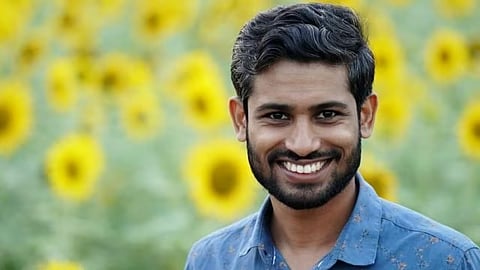

In a significant development, the Supreme Court (SC) of India has directed the Tata Institute of Social Sciences (TISS) to immediately reinstate Ramadas KS, a Dalit PhD scholar and active student leader, who was suspended over a year ago.
Ramadas, a member of the Students’ Federation of India (SFI) and Progressive Students’ Forum (PSF) - TISS, had been embroiled in a legal battle after TISS suspended him for two years, citing his participation in protests and his involvement in promoting the documentary Ram ke Naam that the administration deemed controversial.
The suspension, which also barred Ramadas from entering any TISS campuses, was initially imposed in April 2024 following allegations of misconduct.
The legal proceedings began in May 2024 when Ramadas challenged his suspension, arguing that it was unjust and retaliatory.
“This was the only way forward”
Now, after his reinstatement, Ramadas expressed immense relief, saying, “It’s a huge relief to have the suspension revoked. It’s been more than a year, one year and 15 days to be exact, since I began the legal proceedings. Today marks exactly one year since I started challenging the suspension. It’s been tough, both financially and academically.”
Ramadas, a first-generation student from Wayanad, Kerala, who was also a recipient of the National Fellowship for Scheduled Caste Students, expressed that the suspension was an attack on his academic future.
“Surviving in a city like Mumbai without access to education and financial support is not easy, but challenging the suspension was the only way forward. I’m happy that I can now return to my studies,” he told EdexLive.
Throughout the course of his suspension, Ramadas received overwhelming support from students, human rights activists, writers, and members of civil society who rallied behind him.
Ramadas acknowledged the significance of this solidarity, “I’m grateful for the support I received from the student community, including those at TISS and various student organisations across India. Human rights activists, writers, journalists, and others in civil society all stood in solidarity with me. It meant a lot.”
However, he also emphasised the darker side of his battle.
“I cannot forget the cyberbullying and slander campaigns that took place, and the threats I received in different languages. I hope this ends now,” he added.
A small part of the resistance
After his reinstatement, Ramadas also took to social media, reflecting on the year-long legal battle.
“As we learn from people’s movements, the denial of education to any student was never about affecting just one individual—it was about the fundamental rights of countless students and the question of campus democracy in our higher education system. Though this period has been a tough fight, taking away a significant amount of time from my education and daily life, I am glad that I could also be a small part of the resistance,” he wrote.
